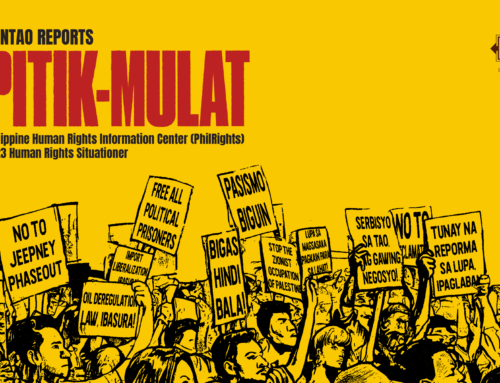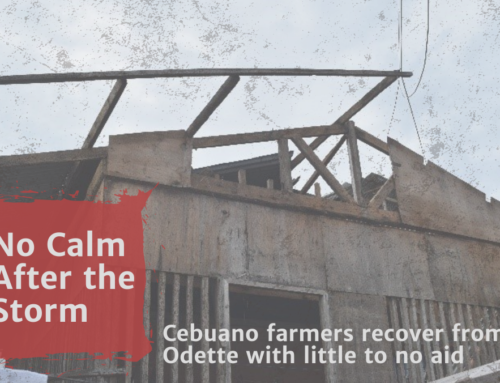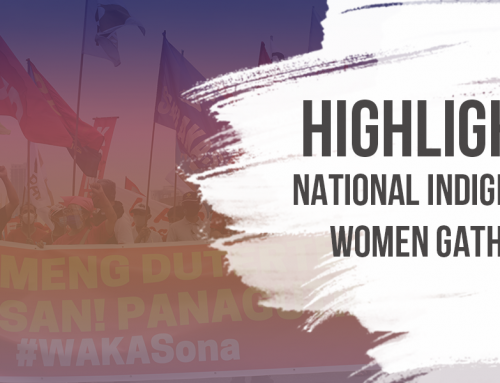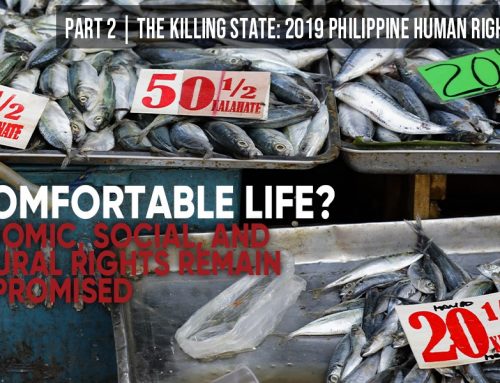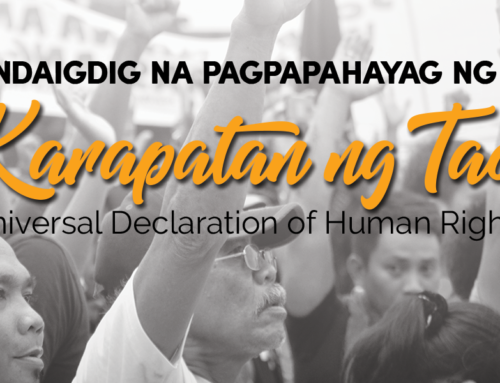
As the world marches to stop climate change we must also remember that the 21st of September marks the International Day of Peace. With millions suffering around the world, in internal or interstate violence, this has not been a good year for peace. In fact, it appears that our world is becoming less peaceful every year.
As a peace advisor working for an environmental organization, I often ask myself: how should we define peace? Surely, it is not only the absence of conflicts. Peace means more than that.
One thing is clear to me – you cannot separate the quest for peace from environmental protection. They are intimately linked. The choices we make about our environment plays a key role in ensuring our security. One example is how we use our environment for our energy needs and more specifically, our reliance on fossil fuels. Fossil fuels remain the world’s main source of energy. And as resources dwindle, they are an increasing source of conflict.
If you look at some of the conflicts that have dominated our news screens this year you will see that fossil fuels – coal, oil and natural gas – have often played a role. Sometimes in the background, sometimes taking center stage. When you scratch the surface – you often find a link to energy sources.
Make no mistake – conflict is always driven by a unique set of circumstances – animosity between groups; ethnic and religious divisions, political and ideological rifts; oppressing and corrupt regimes. It would be wrong to try to reduce them to one dimension or argue they are all about oil. However, the desire to control and take over energy resources, and how it fuels conflict, should not be underestimated.

Last week In Iraq, Islamic State militants (ISIS) fired mortar rounds at the Baiji oil refinery, the largest in the country, only 130 miles north of Baghdad. This was the latest in the militia’s attempt to take over the refinery that has an installed capacity of 310,000 barrels a day. This has not been a one off operation but rather part of the organisation’s overall strategy. In Iraq and Syria, ISIS has been taking over oil-producing and refining facilities and using the proceeds to finance its advance and achieve its long-term goals.
Oil of course, has played an important role in previous rounds of violence in the country.
Rather than signaling prosperity, the existence of oil reserves has become an indicator of suffering in many countries. Nigeria and South Sudan are prominent examples of that. Both countries are estimated to hold the top oil reserves in Sub Saharan Africa; both are amongst the world’s least peaceful states.
In Sudan, many argue, the discovery of oil in the south of the country has sparked and exacerbated a lengthy and bloody civil war with an estimated two million human casualties. The newly established South Sudan, has been independent for three years only and is already the world’s most fragile state. Heavily dependent on oil production, it has recently announced that next year another $1 billion would have to be borrowed from foreign oil companies. Most of the money will go straight back to the same oil companies, to pay off last year’s debt. Back in December, violence has once again erupted in South Sudan between government and rebel forces, with heavy fighting to control key oil fields. More than 10,000 people have already died and 1.5 million displaced in this latest round, and no end is yet in sight. A UN peace mission is being deployed to protect the oil fields. Most South Sudanese get no such protection.
Nigeria is the largest oil producer in Africa and yet most Nigerians subsist on less than $2 per day. The country is plagued not only by staggering corruption, extreme militias and human rights abuses, but by the intervention of multinational oil companies such as Shell, Chevron, Mobil, Elf and Agip that have been accused in the past of being complicit in the abuse and threatening the livelihood and the environment of local communities.
And while Nigeria and South Sudan don’t feature on our international media channels too often, the conflict in the Ukraine and the impact on the global energy sector has certainly been making headlines this year.
With 30% of Europe’s gas coming from Russia, and with approximately half of it reaching Europe through the Ukraine, the crisis has thrown EU Governments into a frenzy, with ‘energy security’ and ‘energy independence’ appearing to be the new buzz words on everyone’s lips. Sadly, – as their leaked plan shows – their plan is to simply change the dealer, instead of ending their fossil fuel addiction and choosing renewables and energy efficiency – the peaceful energies which could make Europe truly energy independent.
Relying on imported oil and gas not only adds to market vulnerability and threats consumption in importing countries. As some of the examples above show it also plays a part in inflicting suffering on millions in the countries where fossil fuels have originated. It is easy to see that the majority of people living in these countries have no share in the profits, but rather a significant share in the misery.
And all this is without even mentioning the threats of climate change, in which fossil fuels consumption are prime culprits and water scarcity exacerbated in many parts of the world by the production of coal.
What I find most upsetting about reading about the immense suffering in different parts of the world, suffering that is very often execrated by the fight to control and profit from fossil fuels, is that it is no longer has to be this way.
There is a way out that could secure greater energy independence.
Transforming the world’s power system from one that is dominated by fossil fuels to one dominated by renewable energy, such as wind and solar power is the right way towards energy independence and security. Renewables – safer, cleaner and now cheaper than ever – are the true energy of peace and hold the key to our future.
Clearly, renewables are not a magic solution and would not eliminate conflicts from taking place. Still – transforming our energy market could help in making progress toward a more peaceful and sustainable living. Achieving true peace and security requires choosing true energy security.
So wherever we are in the world, as we march to save the climate, we are marching towards a safer, peaceful future.
Jen Maman is a Peace Advisor at Greenpeace International.



